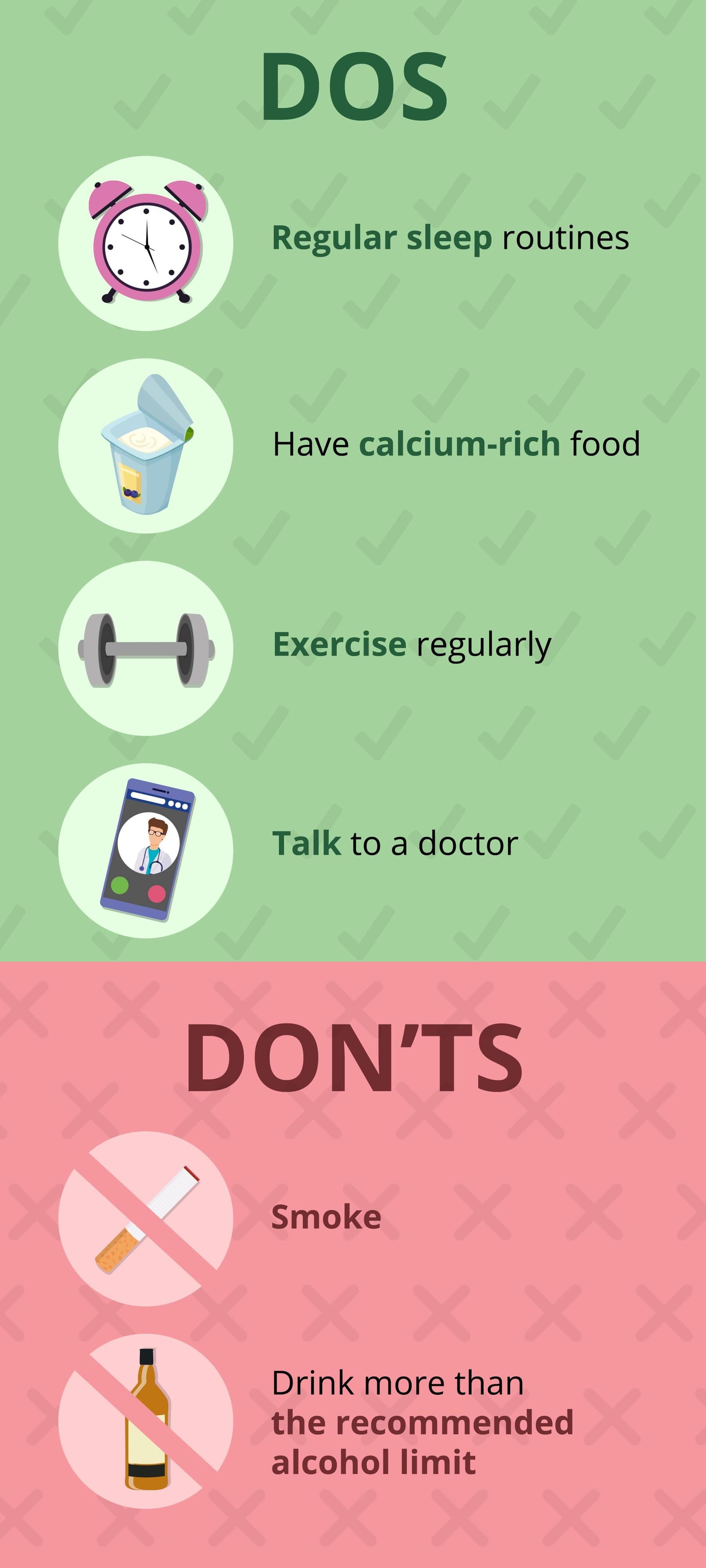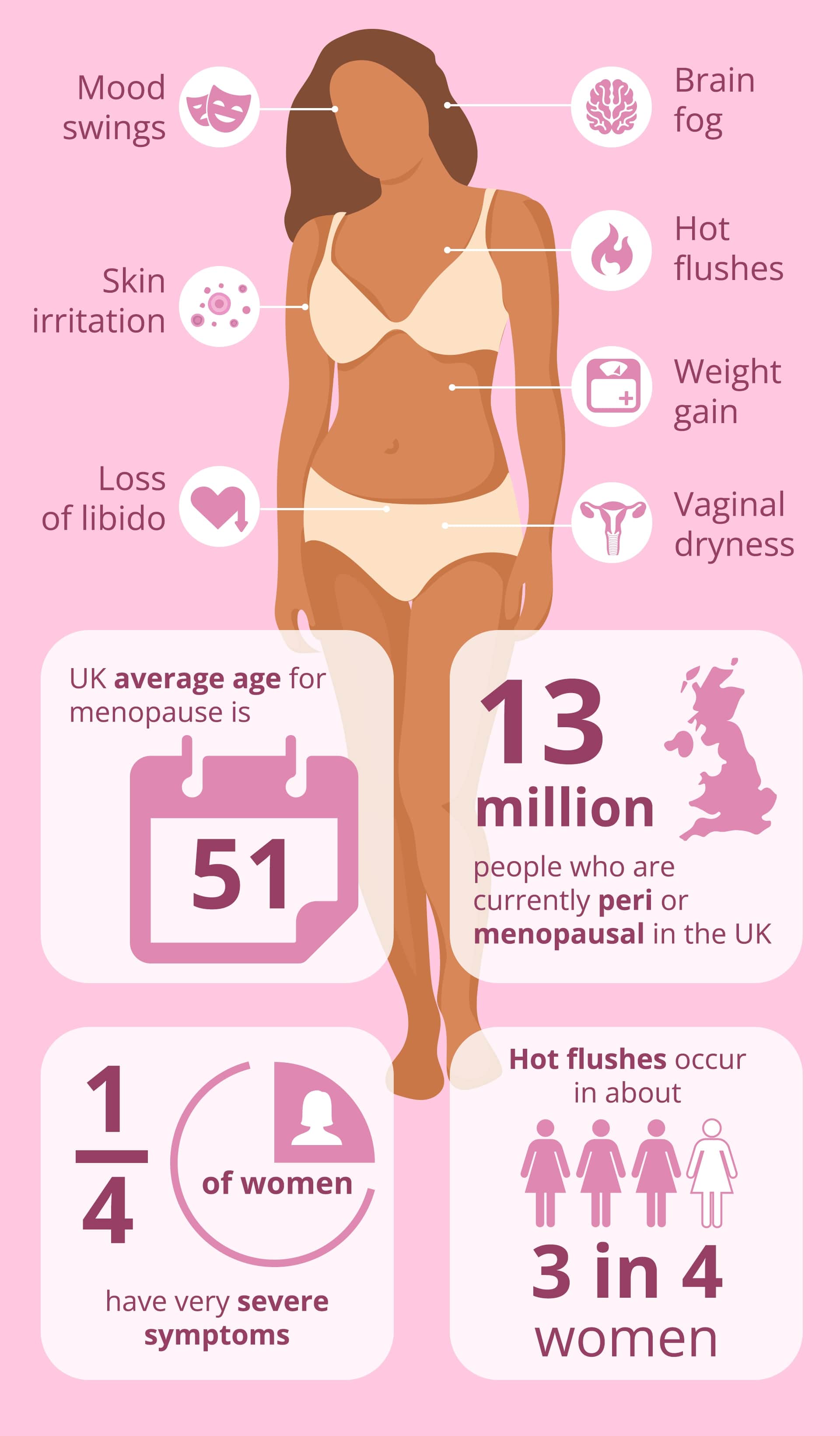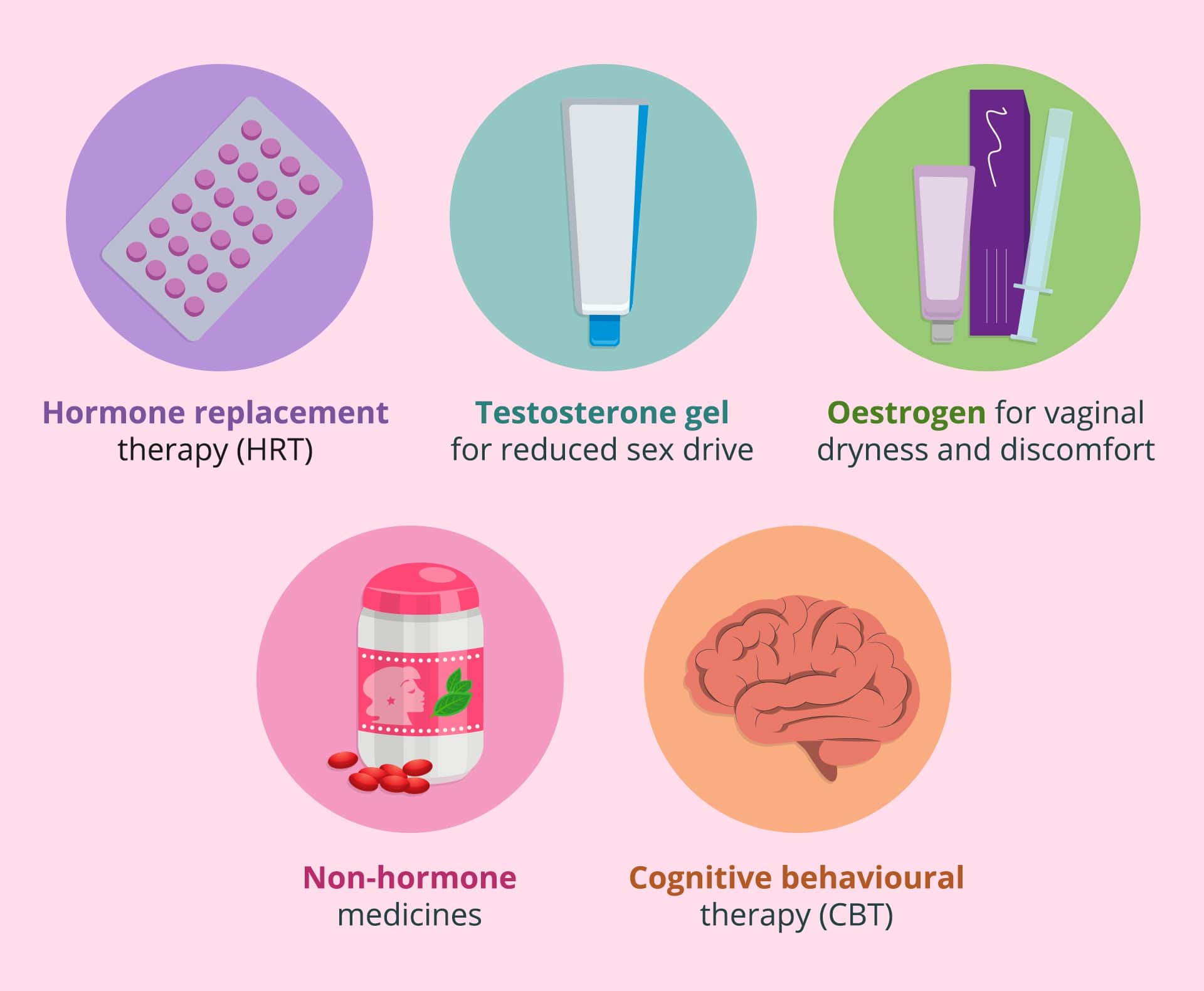What happens to your body during the menopause?
Reviewed by our clinical team
If you’re a woman approaching your late 40s or early 50s, there’s a good chance the menopause is on your mind. Periods are a natural part of life for most women – and when they come to an end it can be an emotional time for many different reasons.
The menopause is caused by a change to your hormone levels. As you approach your last period your levels of oestrogen fall, causing your ovaries to stop releasing eggs each month.
The hormonal changes that occur during the menopause can cause a variety of physical and psychological symptoms – these vary from one person to the next, but for some they can be quite severe and have a negative impact on daily life. Fortunately, there are various treatment options available to treat severe symptoms.
If you think you might be heading towards the menopause and you’re concerned about what will happen to your body, read on to learn some common symptoms – and how to deal with them.
Body changes during the menopause
Irregular periods
The most recognisable and significant physical symptom of the menopause is a change to your periods. You might skip periods or have them come more often than usual. They might be very light or very heavy. Eventually, you’ll stop having periods altogether.
Hot flushes and night sweats
Hot flushes are short episodes where you suddenly feel very hot and sweaty, particularly across the face, neck and chest. Hot flushes only last a few minutes, but they can be very uncomfortable, especially when they occur at night and cause excessive sweating.
Simple lifestyle changes can help with managing hot flushes and night sweats. Dress in layers, so you can remove a layer when you need to, keep a fan in your bedroom, carry a cooling spray, and try to avoid any foods or drinks that seem to trigger the heat (e.g. caffeine, spicy food).
Difficulty sleeping
You may find that you struggle to sleep while going through the menopause – especially if you experience night sweats.
Getting into a good bedtime routine may make sleep easier for you. You can also try keeping your bedroom cool and using layered bed linens that you can strip away easily during the night. If you have a mattress protector, try to avoid plastic backed or synthetic materials as they will trap the heat. A good alternative is a 100% cotton or bamboo one.
Vaginal dryness
Declining oestrogen can cause vaginal dryness, itching and pain. This means that sex might become more uncomfortable.
Lubricants and vaginal moisturisers can help to combat this, along with vaginal oestrogen, which comes as a pessary, cream or ring. Oestrogen based treatments need to be prescribed by a doctor.
Skin changes
The menopause can cause a few different skin changes. You might notice that your skin becomes drier, that you develop acne, or that an existing skin condition becomes worse.
If the latter happens, it’s a good idea to visit your GP to update your existing medication.
To learn more, read this article: Skin symptoms you might experience during the menopause.
Weakened bones
Falling oestrogen levels contribute to reduced bone density in post-menopausal woman, meaning you’ll have an increased risk of osteoporosis. This in turn increases your risk of fractures e.g. broken wrist, broken hip.
There are many different medications available to help prevent or treat osteoporosis, including vitamin D and calcium supplements.
Other physical symptoms
- Headaches
- Heart palpitations
- Pain and stiffness in the joints
- Loss of muscle mass
- Recurring UTIs
Psychological symptoms
In addition to the physical symptoms listed above, it’s fairly common to experience mood changes during the menopause – you might feel more anxious, stressed and depressed than usual. You might also have problems with your memory and concentration (this is sometimes called “brain fog”), and have less desire for sex.
Find out more about your mental health and the menopause here.
When do menopause symptoms start?
In the UK, the average age for a woman to reach the menopause (i.e. have her last period) is 51. However, you might start experiencing menopausal symptoms a few months – or even years – before your periods stop altogether. It’s also common for symptoms to continue for a few years after you’ve reached the menopause.
If you start experiencing symptoms like irregular periods, hot flushes, vaginal dryness and mood swings before the age of 45 it’s a good idea to see your GP as this is a sign of early menopause.
Treatments for menopausal symptoms
If you’re struggling to cope with your symptoms, don’t suffer in silence. Instead, book an appointment with your GP to find out what your options are. There are plenty of ways to address the symptoms of the menopause, including:
- Taking hormone replacement therapy (HRT)
- Taking antidepressants
- Having CBT or counselling
- Making lifestyle changes
To find out more, read this article: Menopause treatment options.

References
https://www.nhs.uk/conditions/menopause/
https://www.nhs.uk/conditions/menopause/symptoms/
https://www.bupa.co.uk/newsroom/ourviews/2017/06/symptoms-menopause-hot-flushes
https://www.bupa.co.uk/newsroom/ourviews/night-sweats-menopause
https://www.nhs.uk/conditions/menopause/treatment/
https://www.nhs.uk/conditions/osteoporosis/causes/
https://www.nhs.uk/conditions/osteoporosis/
https://www.nhs.uk/conditions/osteoporosis/treatment/







